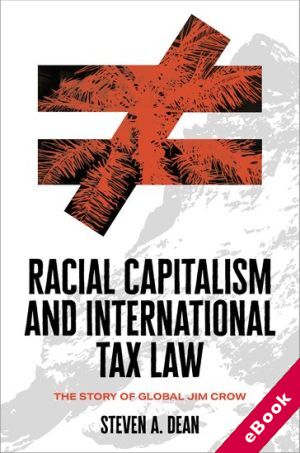
The device(s) you use to access the eBook content must be authorized with an Adobe ID before you download the product otherwise it will fail to register correctly.
For further information see https://www.wildy.com/ebook-formats
Once the order is confirmed an automated e-mail will be sent to you to allow you to download the eBook.
All eBooks are supplied firm sale and cannot be returned. If you believe there is a fault with your eBook then contact us on ebooks@wildy.com and we will help in resolving the issue. This does not affect your statutory rights.
tion: Global tax policy has long determined which states can access the resources necessary to flourish. Today, even the wealthiest states struggle to tax rich individuals and multinationals. Anti-Black racism has enriched affluent states at the expense of marginalized ones and undermined the taxing power of all nations. In a compelling narrative interwoven with personal storytelling, Racial Capitalism and International Tax Law: The Story of Global Jim Crow connects Dr. Martin Luther King Jr.'s metaphor of the "bad check"-representing unfulfilled promises of freedom and equality to Black Americans-to contemporary anti-Black global tax policies. The book uncovers lost connections, such as those between Edwin Seligman, an architect of our global tax system, and the Dunning School, which laid the foundation for Jim Crow laws, and between Stanley Surrey, a Harvard professor and advisor to President John F. Kennedy, and key moments of the Cold War. Furthermore, it takes a global view and reveals how racial panic triggered by African decolonization allowed an exclusive club of white countries to deliver a second bad check to newly sovereign states like Kenya and Nigeria. By circumventing the inclusive one-country, one-vote system of the United Nations, the OECD and its double tax treaty dismantled the generous arrangements that helped Europe rebuild after both World Wars.
Racial Capitalism and International Tax Law/ exposes the surprising role anti-Black racism played in shaping an international tax system that benefits billionaires at the expense of billions of people. This eye-opening account challenges readers to rethink the global tax system and its profound impact on racial and economic justice.